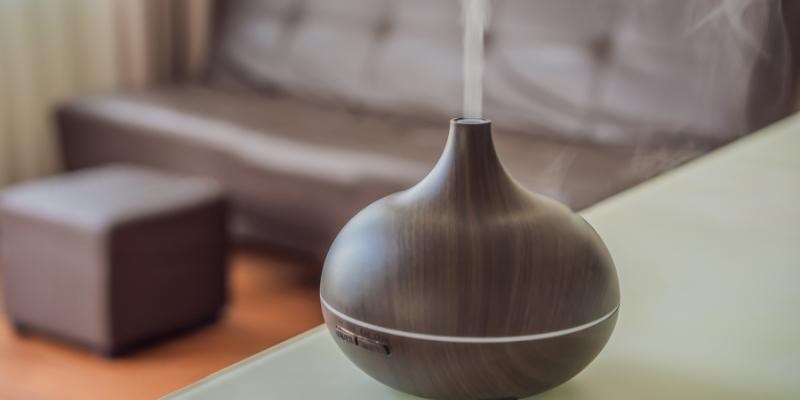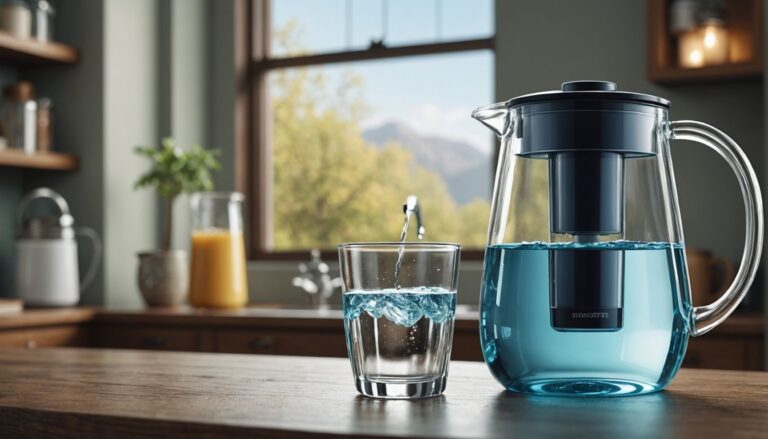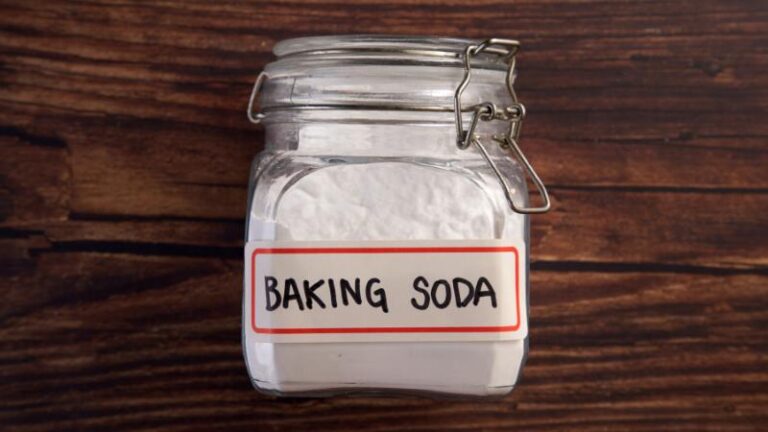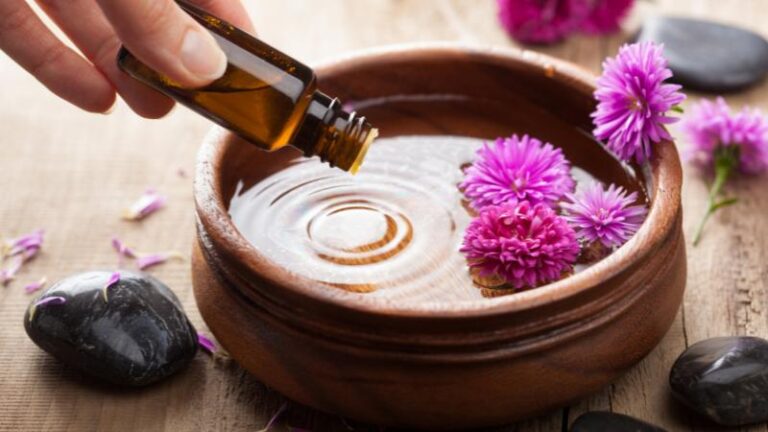What Can I Use Instead of Essential Oils in a Diffuser? Ideas and Tips

Are you asking yourself: “What can I use instead of essential oils in a diffuser?“
You are not alone! Many people enjoy the beautiful scents and therapeutic benefits that essential oils provide, but there are alternative options available for those who want to try something different or don’t have essential oils on hand.
In this article, I will explore different alternatives that can be used in a diffuser to create a pleasant aroma and enhance the ambiance of your home.
Key Takeaways:
- Distilled water, perfumes, extracts such as vanilla and rose, dried herbs and spices, citrus juices, and even vape liquid can be used in a diffuser instead of essential oils.
- While these alternatives can provide a nice scent, they may not offer the same therapeutic benefits as certified organic essential oils.
- Before using non-oil products in your diffuser, check the quality and instructions of your device, as warranties may be invalidated.
- Dilute any products you use with water, and add them to the diffuser after adding water for optimal performance.
- If your diffuser shows any signs of fault or stops misting, stop using it immediately and clean it according to the manufacturer’s instructions.
Non-Essential Oil Diffuser Recipes: Creative Alternatives for Aromatherapy
If you don’t have essential oils on hand or simply want to try something different, there are plenty of non-essential oil diffuser recipes that you can experiment with. In a good quality diffuser, you can use a variety of ingredients to create unique and pleasant scents for your home. Here are some creative alternatives for aromatherapy:
- Distilled Water: If you prefer a subtle and fragrance-free option, distilled water alone can be used in your diffuser. This will help to add moisture to the air without introducing any additional scents.
- Perfumes: You can also add a few drops of your favorite perfume to the water in your diffuser to create a signature scent. Just be sure to choose a perfume that is safe for use in a diffuser and doesn’t contain any ingredients that may be harmful when heated.
- Extracts: Vanilla extract and rose water are popular alternatives to essential oils in a diffuser. These extracts can provide a sweet and floral aroma that can help to create a relaxing and soothing atmosphere.
- Dried Herbs and Spices: Another option is to use dried herbs and spices. You can experiment with different combinations such as lavender and chamomile, cinnamon and cloves, or rosemary and mint to create unique and aromatic blends.
While these non-essential oil alternatives can provide a pleasant aroma, it’s important to note that they may not have the same therapeutic benefits as certified organic essential oils. The use of essential oils is backed by extensive research and studies, ensuring their effectiveness in aromatherapy.
However, if you’re simply looking to enhance the ambiance of your home with a pleasant scent, these alternatives can be a great option.
Before using any non-oil products in your diffuser, it’s essential to check the quality and instructions of your device. Some diffusers may only be compatible with essential oils, and using alternative ingredients may void the warranty.
Also, make sure to dilute any products you use with water and add them to the diffuser after adding water for optimal performance.
If you experience any issues with your diffuser or it stops misting, stop using it immediately and clean it according to the manufacturer’s instructions.

H201SH!FT Shower Starter Kit
Shower with lovely scents to your skin’s delight, hydrated & glowing.
Tips for Using Non-Essential Oil Diffuser Recipes:
- Experiment with different combinations to find scents that you enjoy.
- Start with a small amount of the alternative ingredient and adjust as needed.
- Keep in mind that non-oil ingredients may not last as long in the diffuser compared to essential oils.
- Regularly clean your diffuser to prevent any buildup or residue.
| Ingredient | Scent |
|---|---|
| Lavender and Chamomile | Calming and Relaxing |
| Cinnamon and Cloves | Warm and Spicy |
| Rosemary and Mint | Invigorating and Refreshing |
Remember, non-essential oil diffuser recipes can be a fun and creative way to experiment with aromatherapy. While they may not provide the same therapeutic benefits, they can still help create a pleasant and inviting atmosphere in your home.
So go ahead, try these alternatives, discover the unique scents that they can bring to your space, and give a real answer to your question “What can I use instead of essential oils in a diffuser?“
Natural Alternatives for Aromatherapy: Harnessing the Power of Nature

When it comes to enhancing the ambiance in your home, many natural alternatives can be used instead of essential oils in a diffuser.
These alternatives not only provide pleasant scents but also bring the refreshing and invigorating power of nature into your living space. Here are some fantastic options to consider:
- Dried Herbs and Spices: Experimenting with dried herbs and spices can create unique and delightful aromas in your diffuser. Try options like lavender, rosemary, cinnamon, or cloves to create a cozy and inviting atmosphere.
- Citrus Juices: Fresh citrus juices from fruits like oranges, lemons, and limes can bring a burst of uplifting fragrance to your home. Add a few drops of these juices to your diffuser to enjoy a zesty and energizing scent.
- Perfumes and Extracts: If you’re looking for a fragrance similar to essential oils, perfumes and extracts like vanilla or rose can be excellent alternatives. Just dilute them with water before adding them to your diffuser.
While these natural alternatives can create a pleasant aromatic ambiance, it’s important to note that they may not provide the same therapeutic benefits as certified organic essential oils.
Essential oils undergo a rigorous distillation process that preserves their healing properties. Other products, though delightful, may not offer the same level of therapeutic value.
Before experimenting with non-oil products, it’s essential to check the compatibility and instructions of your diffuser.
Some warranties may be invalidated if you use anything other than essential oils. Dilute any products with water before adding them to your diffuser to ensure optimal performance and safety.
If your diffuser shows any signs of fault or stops misting, it’s best to stop using it immediately and clean it according to the manufacturer’s instructions.
| Alternative | Description |
|---|---|
| Dried Herbs and Spices | Create unique and delightful aromas with options like lavender, rosemary, cinnamon, or cloves. |
| Citrus Juices | Add a few drops of fresh orange, lemon, or lime juice to enjoy a zesty and energizing scent. |
| Perfumes and Extracts | Dilute perfumes or extracts like vanilla or rose with water for a fragrance similar to essential oils. |
While exploring these natural alternatives, remember that the true therapeutic benefits of diffusion are best achieved with certified organic essential oils.
However, trying out different options can be an enjoyable and refreshing way to discover new scents and enhance the ambiance in your home.

H201SH!FT Shower Starter Kit
Shower with lovely scents to your skin’s delight, hydrated & glowing.
Important Considerations: Quality and Safety in Diffusing Alternatives
While using alternative products in your diffuser can be a fun and refreshing change, it’s crucial to take certain precautions to ensure the best experience and safety.
Here are some important considerations to keep in mind when using essential oil-free diffuser options or aroma diffusers without essential oils.
Check Your Diffuser’s Compatibility
Before experimenting with non-oil products, it’s essential to check the compatibility of your diffuser.
Some diffusers may have specific requirements for the type of liquids they can handle. Using substances that are not recommended by the manufacturer can lead to malfunction or even damage to the diffuser.
To protect your investment and ensure optimal performance, always follow the manufacturer’s instructions and guidelines.
Dilute Non-Oil Products
When using alternatives to essential oils in your diffuser, it’s important to dilute them properly. Most non-oil products, such as perfumes, extracts, or citrus juices, are concentrated and can be too strong if used directly.
Diluting them with water helps to disperse the scent more evenly and prevents overpowering aromas. Start with a small amount of the product and gradually increase if needed, while keeping the overall dilution ratio in mind.
Clean Your Diffuser Regularly
Maintaining a clean diffuser is essential for optimal performance and safety. Over time, residue from non-oil products can build up and affect the diffuser’s functionality.
Be sure to clean your diffuser regularly according to the manufacturer’s instructions. This typically involves emptying any remaining liquid, wiping down the interior, and rinsing the diffuser with water.
Regular cleaning helps prevent clogs, mold, and bacteria growth, ensuring a pleasant and safe diffusion experience.
| Consideration | Action |
|---|---|
| Check Compatibility | Refer to the manufacturer’s instructions to ensure the product you want to use is compatible with your diffuser. |
| Dilute Non-Oil Products | Follow the recommended dilution ratio by starting with a small amount of the product and gradually increasing if desired. |
| Clean Regularly | Clean your diffuser regularly according to the manufacturer’s instructions to maintain optimal performance and safety. |
By following these essential considerations, you can enjoy the benefits of alternative scents in your diffuser while ensuring the best experience and safety.
Conclusion: Exploring the World of Aromatherapy Beyond Essential Oils
In conclusion, there are several options you can use instead of essential oils in a diffuser, but it’s important to remember that the full therapeutic benefits of diffusing are guaranteed with certified organic essential oils.
Many people love using essential oils in their diffusers to create a beautiful scent and enjoy the benefits of aromatherapy. However, if you’re looking to try something different or don’t have essential oils on hand, there are alternative options available.
FAQ
What can I use instead of essential oils in a diffuser?
Several alternatives can be used in a diffuser, such as distilled water, perfumes, extracts (vanilla, rose), dried herbs and spices, citrus juices (orange, lemon, lime), and even vape liquid (not recommended in a nebulizing diffuser). However, it’s important to note that these alternatives may not provide the same therapeutic benefits as certified organic essential oils.
Can I use perfumes in a diffuser?
Yes, perfumes can be used in a diffuser to create a pleasant scent in your home. However, it’s important to dilute the perfume with water and follow the instructions of your diffuser for optimal performance.
Are there any natural alternatives to essential oils for aromatherapy?
Yes, there are natural alternatives that can be used in a diffuser, such as dried herbs, spices, and citrus juices. These can provide a refreshing and invigorating aroma without using essential oils.
How do I ensure the quality and safety of diffusing alternatives?
To ensure quality and safety, it’s important to dilute any non-oil products with water and check the compatibility with your diffuser. Additionally, make sure to clean your diffuser properly according to the manufacturer’s instructions to maintain optimal performance.
Can I use non-oil products in any type of diffuser?
While non-oil products can be used in most diffusers, it’s important to check the compatibility and instructions of your specific diffuser. Some warranties may be invalidated if you use anything other than essential oils, so it’s always best to follow the manufacturer’s guidelines.






